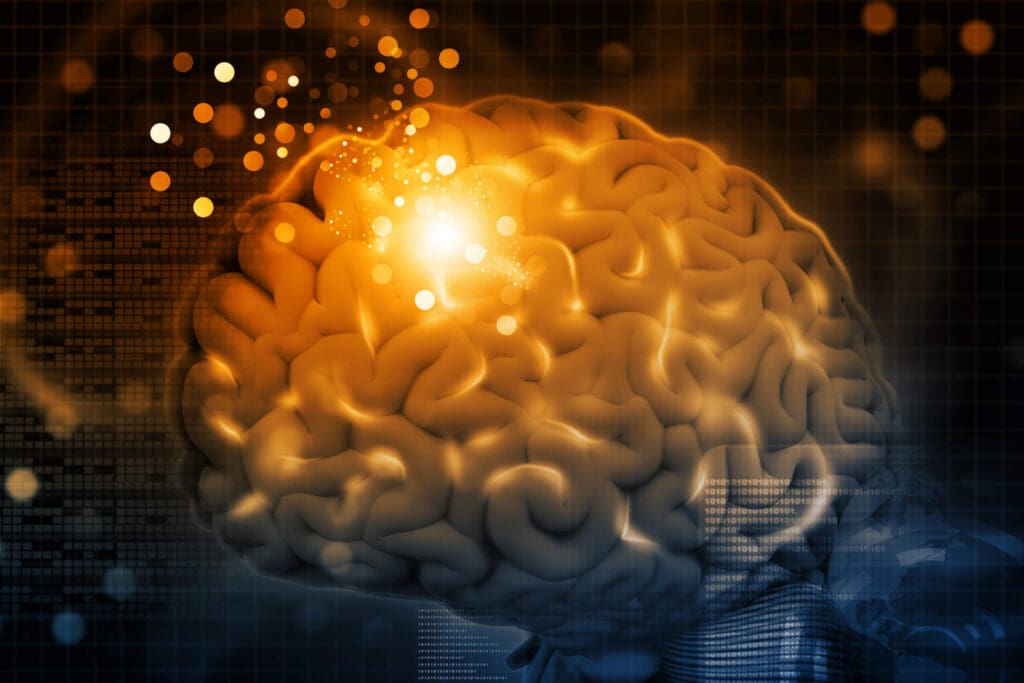Psychedelics have profound effects on the brain and mental health, influencing both perception and cognition. It has fascinated humanity for centuries, influencing cultures, religions, and modern science.
These substances are notable for their profound effects on perception, mood, and cognition. Popular psychedelics include LSD, psilocybin (magic mushrooms), and MDMA (ecstasy). While often associated with the counterculture movement of the 1960s, their roots trace back to ancient rituals and healing practices worldwide. Recent years have seen a resurgence in psychedelic research, especially within the fields of psychology and neuroscience. This blog aims to explore the science behind these substances, their effects on the brain, and their potential implications for mental health.
Impact on the Brain
Psychedelics work primarily by interacting with serotonin receptors in the brain, particularly the 5-HT2A receptor. This interaction leads to a cascade of effects that significantly alter brain function. One of the most notable changes is the disruption of the default mode network (DMN), which is involved in self-referential thoughts and ego.
When the DMN is disrupted, it allows different regions of the brain to communicate more freely. This increased connectivity can result in unique cognitive experiences, from vivid hallucinations to profound personal insights. This rewiring of neural pathways may contribute to the therapeutic potential of psychedelics.
Scientists have also observed increased levels of brain-derived neurotrophic factor (BDNF) following psychedelic use. BDNF plays a crucial role in neuroplasticity—the brain’s ability to reorganize itself by forming new neural connections. This could explain why many users report lasting changes in their thought patterns and behaviours after a psychedelic experience.
Medical Uses and Research

The medical community has shown renewed interest in the potential of psychedelics to treat various mental health conditions. Recent studies have highlighted their efficacy in addressing depression, anxiety, PTSD, and addiction. For instance, a groundbreaking study by Johns Hopkins University found that psilocybin-assisted therapy led to significant reductions in depressive symptoms for patients resistant to traditional treatments.
MDMA, commonly known for its recreational use, has also shown promise in treating PTSD. The Multidisciplinary Association for Psychedelic Studies (MAPS) conducted a phase 3 clinical trial where 67% of participants no longer met the criteria for PTSD after MDMA-assisted therapy.
Ketamine, though not a classic psychedelic, has gained attention for its rapid-acting antidepressant effects. Administered in controlled settings, ketamine infusions have provided relief for individuals grappling with severe depression and suicidal ideation, often within hours of treatment.
Psychedelics and Mental Health
The impact of psychedelics on mental health is a complex and evolving topic. Advocates argue that these substances can catalyze profound healing by facilitating deep emotional processing and promoting a sense of connectedness. Several personal testimonies and clinical case studies support this view, describing experiences of breakthrough insights and emotional release.
However, the use of psychedelics is not without risks. Adverse effects can include anxiety, paranoia, and in rare cases, psychosis. It’s essential to approach these substances with caution and under professional supervision when used for therapeutic purposes. Integrating the experience through psychotherapy can help mitigate potential risks and enhance the therapeutic benefits.
Despite the promising results, it’s crucial to acknowledge that psychedelics are not a panacea. They should be viewed as tools that can complement, rather than replace, existing mental health treatments. Ongoing research and clinical trials will help refine our understanding of their potential applications and limitations.
Legal and Ethical Considerations

The legal status of psychedelics varies widely across the globe, reflecting differing cultural attitudes and regulatory approaches. In the United States, most psychedelics are classified as Schedule I substances, indicating a high potential for abuse and no accepted medical use. However, several cities and states have taken steps to decriminalize or legalize certain psychedelics for therapeutic use.
The legal landscape is slowly shifting, driven by mounting evidence of the therapeutic potential of psychedelics. Countries like Canada and the Netherlands have more permissive regulations, allowing for controlled therapeutic use and even recreational access in certain contexts.
Ethical considerations also play a significant role in the discourse surrounding psychedelics. Issues such as informed consent, potential exploitation, and equitable access to treatment must be addressed. Ensuring that vulnerable populations are protected and that benefits are accessible to all who need them is paramount in the responsible integration of psychedelics into mainstream healthcare.
Looking to the Future
The future of psychedelic research and application appears promising. Advances in imaging technology and neuroscience will likely yield deeper insights into how these substances affect the brain. This knowledge could inform the development of new therapeutic protocols and pave the way for broader acceptance and integration into medical practice.
Public perception of psychedelics is also evolving, with increasing recognition of their potential benefits. Documentaries, books, and mainstream media coverage have helped demystify these substances and reduce the associated stigma. This growing awareness will likely drive further research funding and policy changes.
Exciting developments are on the horizon, including the potential for personalized psychedelic therapies tailored to individual neurochemistry and psychological profiles. Such advancements could revolutionize mental health treatment, offering new hope for those struggling with conditions resistant to current therapies.
The science behind psychedelics is a fascinating and rapidly evolving field. These substances offer unique insights into brain function and hold significant potential for treating various mental health conditions. However, their use comes with risks and ethical considerations that must be carefully navigated. Understanding the impact of psychedelics on the brain is a gateway to exploring new frontiers in human consciousness and healing. As research progresses, we can look forward to a future where psychedelics are integrated safely and responsibly into our healthcare systems, offering new avenues for mental well-being.

